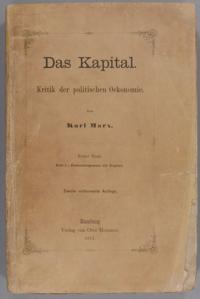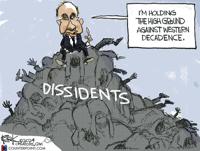John Cheeks checked the D.C. Lottery website around midnight on Jan. 7, 2023, after having a lousy day. He had argued with his mother earlier, and his accountant had criticized his proposed budget for a new home trust company he dreamed of starting.
All those financial woes melted away when the lottery’s webpage loaded. Cheeks’s Powerball numbers matched.
He had just won $321 million.
But when Cheeks took his ticket down to the D.C. Office of Lottery and Gaming, an employee told him the website had shown the wrong numbers. His ticket wasn’t a winner, he had encountered a test drawing mistakenly posted to the website, and he wouldn’t be getting a nine-figure payout.
“I was very disappointed,” he told The Washington Post, “and angry.”
D.C. Superior Court is scheduled to start hearing the case on Friday
Cheeks, 60, is suing the D.C. Office of Lottery and Gaming, Powerball and Taoti Enterprises, a D.C.-based contractor that markets the lottery, alleging breach of contract, gross negligence and emotional distress. In a 10-page complaint filed in November, Cheeks alleges that the defendants posted the wrong numbers, took at least two days to take them down, didn’t issue a public announcement correcting their mistake and caused him distress by tricking him into thinking he had won the jackpot.
“I’ve just been traumatized by all this,” he said.
Powerball and the D.C. Office of Gaming and Lottery did not respond to requests for comment from The Post. Brent Lightner, Taoti’s CEO, called Cheeks’s lawsuit “frivolous” but otherwise declined to comment.
In a four-page motion to dismiss the lawsuit filed on Jan. 18, Taoti’s lawyer Mary Dimaio said that Cheeks is engaging in an “attempted scheme to capitalize on what was an obvious error.” Taoti meant to post the numbers on a “test” website but mistakenly put them on the live Powerball website before the drawing, and one of the six ball icons didn’t have a number, a telltale sign that something was amiss.
“These red flags would cause any reasonable person to know that they were not the valid winning numbers for the following day,” Dimaio wrote in her motion.
Powerball is played in 45 states, D.C., Puerto Rico and the U.S. Virgin Islands. The odds of winning the grand prize — by matching all five regular numbers plus the red Powerball number — are 1 in 292.2 million, according to its website.
Cheeks bought his ticket the night of Jan. 6 at a store on Wisconsin Avenue near American University, he told The Post. He paid $6 for two chances at the prize, both of them combinations of his birth date and those of his relatives. Then, he tucked the ticket away.
It was on the following day that he took heat from his mother and then from his accountant, he said. Around midnight, he visited the D.C. Lottery website to see if his luck had changed.
It had, in a big way, or so it seemed to him at the time.
“I was numb,” he said. “I didn’t have any problems.”
Cheeks started planning his new future. He intended to pay off his debts that had accumulated over two decades and open up a bank focused on giving home loans to people who couldn’t get one from a major lender, the project he had been talking about with his accountant. With the jackpot, the bank would benefit from a lot more seed money than Cheeks could have dreamed of. He also promised his aunt that he would buy a home where she could live with him, his mother and his two siblings.
On Jan. 10, he went to the D.C. Lottery’s office in Southeast to claim his prize and put his plans in motion. His mood turned for the worse when an employee there told him the lottery had posted the wrong numbers and Cheeks hadn’t won anything, he said. The employee allegedly told him he might as well toss his ticket in the trash.
Cheeks saw his newfound dreams pulled back out of reach.
“All of that was shattered,” he said.
In February 2023, Cheeks sued, but at a hearing, a judge directed him through the D.C. Lottery’s formal process for redeeming his ticket, he said. He did so, and after seven months, received a letter of rejection, he added. Then he refiled his lawsuit on Nov. 21.
Cheeks said he hopes his new lawsuit forces the lottery to be more transparent. He wants lottery officials to announce their mistakes instead of sweeping them under the rug, letting people believe they won only to reject them — a particularly jarring emotional roller coaster. Cheeks said that having to go back on his promise to buy a house for his aunt, who has since died, was painful.
He also has another goal, which he summed up in three words.
“To get paid.”


















